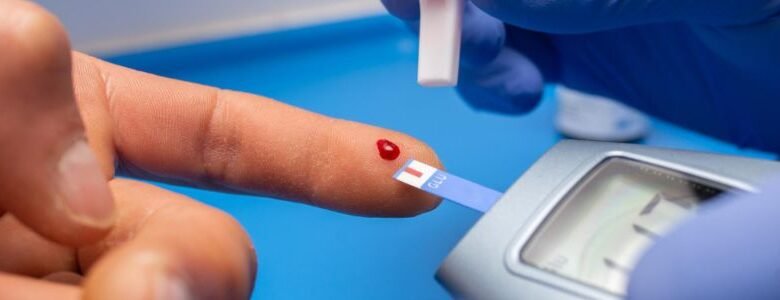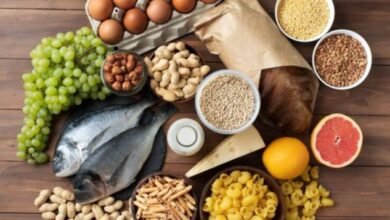42 Factors That Affect Blood Glucose

Your blood sugar levels are the key indicator of your overall health. And that makes it crucial for every age group to know the ideal range! Typically, the range varies based on age, lifestyle factors, and health state, giving a helpful insight into your body functioning. Too high or too low blood sugar can be dangerous and cause diabetes; hence, you might need emergency medical care.Knowing the factors contributing to high or low blood sugar levels can aid in maintaining optimal health. Those include food types and quantity, medication dose and timing, physical activity intensity and timing, environmental elements, and many more. Comprehending at least 42 things that affect blood sugar can help you efficiently with diabetes management. Here, we have listed all of them in this article in detail. Read on!
Importance of Monitoring Blood Sugar Levels
Before proceeding, learn how important it is to monitor your blood sugar levels! When blood sugar levels drop to 70 mg/dL, it is considered hypoglycemia, called low blood sugar. On the other hand, when it is raised above 180 mg/dL, it is called hyperglycemia, which is high blood sugar. Checking your blood glucose levels helps determine whether you are appropriately fulfilling your glucose targets. Meeting the right target benefits you to prevent the undesirable symptoms related to high and low blood sugar, thus, avoiding long-term diabetes risks. So, the best strategy is to monitor your blood glucose levels before every meal to see if you are reaching your targets. If the reading before a meal is at a desired mark, check the blood sugar level after dinner following the 1-2 hours to observe how the food impacts your blood glucose levels.
However, many other factors must be considered and can affect your blood sugar levels. Here, we have listed 42 among them below.
Also Read: Difference Between Diabetes Type I and II
Factors That Affect Blood Sugar Levels
The following are the 42 factors that affect blood glucose levels; different people may react differently to all of them. Let’s discuss these factors in detail.
1. Carbohydrate Quantity
Understanding carbohydrate intake is crucial in maintaining your blood sugar levels. Every person needs food rich in carbs. The actual amount of carbohydrates required to consume will ultimately depend on your age, exercise levels, and goals that you want to achieve. For instance, if you are trying to lose weight while managing your blood sugar, you should limit your carbs intake. On the other hand, if you are satisfied with your weight, you need to consume more healthy carb-rich foods. The total carbohydrate amount will significantly affect your body’s glucose levels after eating. However, not every diabetic patient has to restrict their carb intake.
2. Carbohydrate Type
Carbohydrates supply glucose which is the primary energy source of your body. There are two types of carbohydrates- sugar and starches. Fiber is another type of carbs. Consume starches such as breakfast cereals, oatmeal, potatoes, brown rice, etc., which are less processed and slowly increase blood sugar levels. Also, have high fiber-rich food products, including whole-grain bread, barley, broccoli, berries, buckwheat, nuts, and seeds, as they help restrict sugar absorption, thus maintaining your blood sugar level at regular reading.
3. Fat
Your body needs fats for some functioning. Not all fats from the food are bad for your health. You need to limit the trans and saturated fats as they contribute to insulin resistance, lowering your blood sugar levels. Dietary fats are all heart-healthy foods which you can consume from foods such as avocado, chia seed, nuts, and flaxseeds. These fats slow the digestive process, which takes a long time to digest the food, resulting in a gradual rise in sugar levels. Eating fat-rich foods in moderate amounts has a minimum effect on the body’s glucose level. However, overeating can lead to prolonged high sugar levels.
4. Protein
Generally, protein also gives energy to the body in the absence of carbs. However, when digested, it does not produce glucose, which means it has minimal impact on your blood sugar levels. This potent nutrient helps balance the glucose levels in the blood by increasing the absorption of sugars or carbohydrates. Also, protein breaks down more slowly than carbs, so its effects happen gradually after a few hours. It means it does not cause a significant rise in your glucose levels. The best sources are fish, lentils, chicken, and tofu to get the right amount of protein.
5. Caffeine
When you consume caffeine, it generally stimulates the release of hormones called cortisol and adrenaline. The adrenaline promotes a breakdown of stored glucose in your muscles and livers, causing a temporary rise in your blood sugar even if you have black calorie-free coffee. The same goes for green tea, black tea, and energy drinks. Everyone reacts differently to caffeinated beverages, so checking your blood glucose can help maintain it appropriately. Research says intake of some compounds found in coffee may prevent the risks of type 2 diabetes in a person.
6. Alcohol
Though it might not come to your mind when considering the factors that can impact your blood sugar, the truth is drinking alcohol in excess amounts can cause hypoglycemia (low blood sugar level). This condition occurs because the liver avoids producing enough glucose and remains busy processing the alcohol. It means there is no release of glucose in your blood to stabilize your blood sugar levels. So, if you want, have alcohol in moderate quantities and make sure it should never be consumed on an empty stomach. Keep snacking in between the sips.
7. Meal Timing
Regular meal timing can prevent blood sugar level fluctuations. So schedule your 3 main meals 4 to 5 hours apart simultaneously every day. It stabilizes your blood sugar, controls your cravings, and fuels your body with the energy required for daily activities. A long break between meals can lower your blood sugar levels. On the other hand, having one big meal can cause blood sugar spikes. Skipping the meal often can decrease your metabolism, making it hard for the body to manage blood glucose levels and the right weight. Moreover, regular mealtimes help regulate the internal circadian clock of the body. Research says a disruption of this clock can lead to type 2 diabetes in a person.
8. Dehydration
Dehydration and blood sugar are co-related and can negatively impact the body. Your body falling abruptly short on the liquid can lead to hyperglycemia(high glucose levels) because sugar in the blood becomes more concentrated. This condition can become worse when high blood sugar affects you more vigorously, making you urinate often, which can result in excessive dehydration. So, if you are struggling with diabetes, you must be highly attentive about drinking a lot of water throughout the day. Some calorie-free, caffeine-free, and unsweetened beverages like iced herbal teas can also be helpful to stay hydrated and healthy. At least drink 7-8 glasses of water daily for great hydration.
9. Personal Microbiome
A healthy gut microbiome is an essential factor impacting your blood sugar. High levels of gut bacteria called “Coprococcus” cause higher insulin sensitivity. While the high levels of gut bacteria known as “Flavonifractor” can lead to lower insulin sensitivity. A high insulin sensitivity indicates that your body tissue cells can respond well to the insulin. On the other hand, low insulin sensitivity means a typical insulin response. Individuals with low insulin resistance can not produce or use enough insulin. It, as a result, raises blood sugar levels and causes type 2 diabetes. So, maintain your gut microbiome by adding probiotic-rich food items such as yogurt, cheese, and fermented products.
10. Medication Dose
One of the crucial factors that contribute to blood sugar control is medications. Whether taking oral medicines or using insulin for diabetes, taking the correct dosage is very important. Insufficient dosing of some drugs can be the reason for high sugar, while too high or too frequent doses can result in a blood sugar crash. Hence, always seek professional help from healthcare providers and know how much dosage of a particular medication you need. Any changes in doses can lead to blood sugar levels fluctuations. So, if you are struggling with diabetes and the current medication is not practical in maintaining your blood sugar, it is better to talk to the doctors and get your treatment plan adjusted.
11. Medication Timing
Consistency is what truly matters when managing your blood sugar levels in balance. Take prescribed medicines at a similar time each day. For instance, if you are given basal insulin for the long run, specially designed to stabilize your blood sugar during the nighttime and between meals, you need to consider one time a day and stick to the exact timing every day. Sometimes, the timing also depends on the medications you are taking. A few diabetes medicines are prescribed before meals, some with food and some at the first bite. Moreover, some pills are meant to be taken two times per day, while others for three times daily. Just be consistent!
12. Medication Interactions
If you have diabetes, sometimes your diabetes medications are what can cause high blood sugar. They can interact with the other medicines you take for other health reasons, causing a blood glucose spike. A few medications can be problematic, such as steroids, which are used to treat diseases caused by allergies or inflammation. Medicines that treat depression, anxiety, and other mental health-related issues and drugs for high blood pressure, like thiazide diuretics, amiodarone, or calcium channel blockers, can also be detrimental. So, if you are using diabetic medications along with these types of medicines, always inform your doctors about them for your safety.
13. Steroid Administration
Well, steroid administration can lead to high blood sugar levels in people who are already struggling with diabetes. In addition, they can also increase blood sugar levels in people with no diabetes. The reason is that the liver produces more sugar in the bloodstream during steroid consumption. Moreover, steroids make it challenging for the sugar to leave the blood. Plus, the body may become insulin resistant when consuming steroids, which leads to blood sugar spikes. So, if you are taking steroids, always keep a check on your blood sugar and share your prolonged high reading with the doctors. They may help change the dose and timing to take steroids if required.
Also Read: 10 Things you Need to Consider when Buying Steroids
14. Niacin (Vitamin B3)
Type 1 diabetes is when the body’s immune system attacks and kills insulin-creating cells in the pancreas. Niacin can help protect these cells and possibly reduce the risk of this type of diabetes in children having a high chance of this disease. However, people with type 2 diabetes can experience some complications due to the niacin administration in their daily eating routine. Does Niacin raise blood sugar levels, too? Yes, even though Niacin can lower the high cholesterol levels in a person with type 2 diabetes, it can also cause spikes in glucose levels. Research says that if Niacin is taken to maintain the cholesterol, you should carefully monitor your blood sugar. Another study also suggests that vitamin B3 does not hurt your blood levels.
15. Light Exercise
Regularly exercising is a foundation for healthy living and controlling diabetes. When you exercise, the cells use the stored sugar in the liver and muscles. As the body refills these stores, it draws more blood sugar. So, when you do light exercises like gentle yoga or walking, your body uses enough glucose which gently balances your blood sugar level. If you have type 2 diabetes, light exercises can help lower your blood glucose levels. So, always be active daily and check your blood sugar before, during, and after practicing exercises.
16. High Intensity And Moderate Exercise
As you know, regular exercise is a critical factor in diabetes management. High-intensity exercises such as HIIT(High-Intensity Interval Training) can improve your insulin sensitivity and may cause a temporary rise in temperature, which subsides after some time. On the other hand, moderate exercise such as weightlifting or cycling takes more glucose from your blood and can lower your sugar levels. However, check your blood glucose levels to avoid hypoglycemia or hyperglycemia. Also, always consult the doctors before planning any fitness regimen.
17. Level of Fitness/Training
The question, “Does insulin increase or decrease blood sugar?” revolves around the overall fitness level. Your fitness level can influence the use of insulin by your body cells. If you regularly practice exercises in moderation, the results can be improved insulin sensitivity. It consequently leads to controlled blood sugar levels. However, intense workouts or training needs more energy, so the body draws more glucose, causing blood sugar spikes for a short time. So, checking your fitness or training level and adjusting the insulin dosage or food intake as required is essential.
18. Time Of Day
Blood sugar levels can abruptly rise and fall throughout the day. In the early morning hours, hormones like growth hormone and cortisol prompt the liver to increase the glucose levels, which provide energy to the body, making you wake up. It activates beta cells of the pancreas, which release insulin to regulate the blood sugar levels. However, the lowest blood sugar levels typically occur during the day before mealtime. But the time of the day may differ for different people. So, always keep a check on your blood glucose levels at various time intervals. It will help you understand the pattern of your body, which can let you adjust your routine as needed.
Also Read: Growth Hormone Deficiency- A game of life won by Lionel Messi
19. Food And Insulin Timing
To control your diabetes, your main goal should be managing your blood sugar levels. What you eat and when you have insulin shots every day will determine how much blood glucose rises or falls. Consult a doctor and get the right treatment program. Professionals will help you with the right plan that suggests the correct daily insulin doses and carbs. They will schedule the timing of your medicines and meals correctly based on your body’s requirements and the type of insulin you must use. Any wrong food and insulin timing can cause a spike or drop in blood sugar levels.
20. Too Little Sleep
Getting enough sleep is necessary for excellent health. Too little sleep prevents the body from making use of insulin efficiently. It can increase the levels of blood sugar more than it should be. Affecting insulin sensitivity and blood glucose levels, sleep deprivation can be one of the factors leading to type 2 diabetes in a person. Also, increased wakefulness can lead to more food cravings, causing weight gain, as per the research. So, always try to rest for at least 7 to 9 hours. Consider the things that can help, like no use of electronic gadgets at bedtime, a regular sleep schedule, and relaxing your mind before bed.
21. Stress And Illness
When you are under stress, the body releases adrenaline and cortisol hormones as a fight response. It stimulates the body to act and protect against the attacks. As a reaction, the body uses the stored glucose and fat as energy sources to meet the threat. If you have diabetes and are under stress, insulin cannot enter the cells to break the glucose down, raising blood sugar levels. Though it is impossible to avoid all stress, finding the right ways can help effectively. For instance, you can perform yoga and medication or also give a try to gentle massage.
22. Recent Hypoglycemia
Over time, repeated bouts of hypoglycemia can make you unaware of recent hypoglycemia. Your brain and body stop showing signs or symptoms that can alert you about low blood sugar levels. Those signs include irregular heartbeats or shakiness. In such conditions, the chances of severe hypoglycemia increase, causing a drop in blood sugar levels. Hence, it is crucial to closely monitor the body’s glucose levels to prevent a “rebound high.” When insulin highly drops blood sugar, the body activates hormones that force the blood glucose levels to “rebound high.”
23. During-Sleep Blood Sugars
Every day, the body undergoes a circadian rhythm cycle that increases blood sugar levels during nighttime or when you are asleep. This spike in blood sugar is not a matter of concern. A night of restorative sleep allows the body to reduce unhealthy glucose levels by boosting a healthy body system. But if you have diabetes, exercising close to bedtime or being active throughout the day can drop the sugar levels during sleep time, causing hypoglycemia. So, use the glucose monitor to track your blood sugar levels while you sleep.
24. Dawn Phenomenon
According to research, when we talk about the dawn phenomenon, it is a period when people with diabetes experience a rise in their blood glucose. It consequently leads to high blood sugar levels, a condition called hyperglycemia. Usually, it happens early in the morning, between 4 a.m. and 8 a.m., and the reason still needs to be clarified. It is believed that some hormones that are released overnight naturally increase insulin resistance, which consequently leads to spikes in blood glucose levels. So, to manage your blood sugar, you should adjust your meals and medication intake before going to sleep.
25. Infusion Set Issues
When using an insulin pump, a sudden rise in blood glucose levels can be due to problems related to the infusion set, like blockages, kinks, or bacterial contamination, leading to skin inflammation. Such issues can affect insulin delivery to the body and cause fluctuations in blood sugar levels. So, all parts of the insulin pump must work properly to perform well. The insulin must be unspoiled and not expired, the cannula or infusion set must be correctly placed under the skin surface, the tubing and reservoir must not have air pockets, and the pump should work excellently. To prevent any issues, always check the infusion set.
26. Scar Tissue And Lipodystrophy
Lipohypertrophy is a small mass of fatty tissue formed under the skin layer due to repeated injections in the same place. These lumps are commonly found in people with diabetes and can impact the ability of the body to draw injected insulin, which can cause severe complications. Uneven insulin absorption can lead to changes in glucose levels, making it difficult to achieve suitable blood sugar control. Hence, it is necessary to rotate the pump or injection sites, check the skin, and always use a new, fresh needle for separate injections. It can prevent the growth of scar tissues, which can affect insulin absorption.
27. Intramuscular Insulin Delivery
Intramuscular insulin delivery raises the question, “Does insulin increase or decrease blood sugar”? Intramuscular insulin delivery raises the blood sugar very rapidly. This is because if the insulin is injected into the muscle of the diabetic patient, it can be absorbed too quickly, and the action of the insulin can show its effects much faster. It can lead to consistent, suitable blood glucose increase. Therefore, insulin should be delivered to the fatty tissues under the patients’ skin because insulin absorption and action in the fatty tissues are much more constant, thus regulating the blood sugar levels.
28. Allergies
Food allergy is your immune system’s response after you eat certain foods. The allergy-causing food can cause digestive problems like bloating, diarrhea, swollen airways, hives, and headaches or migraines. When the body experiences these symptoms, it undergoes stress, causing spikes in blood sugar levels. Responding to stress, the body releases the hormone known as cortisol to make you relaxed. But cortisol also stimulates the pancreas to give out stored glucose, boosting your energy and increasing blood glucose. So, if you have food allergies and are diabetic, be aware of allergy-causing foods before consuming them.
Also Read: What causes Shortness of breath after eating?
29. A Higher BG Level (Glucotoxicity)
Untreated high blood sugar(called hyperglycemia) for a more extended period can lead to glucotoxicity, which is generally caused by damaged beta cells. The impaired β-Cells reduce insulin production and increase insulin resistance, producing glucotoxicity. It leads to worsening of glucose control in people with type 2 diabetes, increasing the blood sugar levels. Regular checking the glucose levels can help decrease these spikes. Also, restricting carb consumption, staying physically active, and managing stress can help boost insulin sensitivity and lower blood sugar levels.
30. Periods (Menstruation)
When your periods are about to come, your body produces many hormones. There is an increase in the progesterone hormones, which causes temporary insulin resistance and blood glucose spikes. Also, if you have diabetes and are taking hormonal pills, it can lead to further boosting the levels of progesterone. The fluctuations in hormonal balance during the menstrual cycle lead to changes in blood sugar levels, which are different for every woman. Some women with Type 1 diabetes notice their blood glucose levels rise 3 to 4 days before their period starting date. Adjusting the medication dosages and food intake throughout this time is better.
31. Puberty
As puberty starts, there is a release of estrogen, a sex hormone in girls. These hormones cause spikes in the blood sugar levels. In addition, cortisol levels, a stress hormone, can also increase during this time in the life of teenagers. Both of these hormones can cause changes in the body cells, which prevent them from using insulin, leading to insulin resistance. Research says that insulin sensitivity during puberty decreases by 25%-50%. These hormones are at peak at night which means there could be an increase in blood sugar in the morning time.
32. Celiac Disease
Celiac disease is a condition where the body cannot handle gluten- a protein present in foods like wheat, barley, rye, etc. If you have celiac disease and consume gluten-rich food, your immune system reacts vigorously and causes damage to the small intestine. It prevents intestinal cells from absorbing nutrients such as sugar, which can lead to low levels of blood glucose in the body, thus increasing the risk of hypoglycemia. Adding gluten-free food to your diet may improve glycemic control and regulate blood sugar levels.
33. Smoking
If you are struggling with diabetes, managing the diabetes can be challenging for you, and smoking nicotine-rich cigarettes can make it even more challenging. Intake of high amounts of nicotine content from smoking cigarettes can prevent the body cells from responding to insulin, which consequently makes your blood glucose levels higher. It might get more challenging for people with diabetes to control their glycemic levels. They might need to take large insulin doses to regulate their blood sugar. It will be best to quit smoking, which can significantly improve glycemic control.
Also Read: How Much Nicotine Is In A Cigarette?
34. Expired Insulin
Expired insulin won’t work effectively in managing your blood sugar levels. The reason is the breakdown of proteins present in insulin after some time. Insulin proteins are responsible for insulin secretion in the body. Sp spoiled or expired insulin may perform poorly as desired, leading to higher blood glucose levels than standard levels. This insulin will be less effective, and by increasing the blood sugar levels, it might cause some health issues like frequent urination, increased thirst, blurry vision, and tiredness. The better idea is always to check the expiry date of the insulin.
35. Inaccurate BG Reading
Inaccurate BG reading is another factor of the 42 things that may affect your blood sugar. With incorrect readings, you won’t get a clear idea of how high or low your glucose levels are. But with accurate BG reading you can easily and quickly know what affects blood sugar and how to control your glucose levels. It means, with the help of correct reports, you can treat low blood glucose levels with fast-acting carbohydrates or prevent your high blood sugar with fast-acting insulin. When you are assured of the accurate readings, it keeps you from missing the needed treatment. So, adjust the blood glucose meter regularly, check the strips, and confirm your BG readings are correct.
36. Outside Temperature
Among 42 things that affect blood sugar, some environmental factors, such as outside temperature, also play a significant role. If the outdoor weather is warm, it can make you sweat frequently, resulting in dehydration. The consequences of dehydration are spikes in blood glucose levels because sugar in the blood becomes concentrated. Moreover, high outdoor temperature causes the widening of blood vessels, increasing insulin absorption and lowering blood sugar. Also, a study says cold temperatures can stimulate the body to release cortisol, a stress hormone that reduces insulin secretion and causes blood glucose levels to go up. So, stay in an environment with moderate temperature.
37. Sunburn
If you have diabetes, sunbathing for a long time can cause sunburn, impacting your blood sugar. The effects of sunburn are faster dehydration and frequent urination, leading to less water in the body. It makes glucose more concentrated, increasing your blood glucose levels higher than the normal range. On the other side of the picture, if you take insulin, it may be absorbed from the injection site more rapidly during the warm climate. Fast absorption of the insulin can increase the risks of hypoglycemia. Also, sunburn causes stress, increasing stress hormones called cortisol, which results in higher glycemic levels. So, protect your skin by wearing sunscreen when sitting in the sun.
38. Altitude
If you are a mountaineer or love to trek mountains often, you might have one question: “Does altitude affect blood sugar”? To your answer, yes, if the altitude is high, it can cause blood sugar spikes. The reason is the lack of oxygen at high altitudes, which stresses the body and prompts it to release hormones such as cortisol, adrenaline, and noradrenaline. These hormones make the liver produce more glucose and reduce the production of insulin, which causes high blood sugar. So, if you plan to hike to high-altitude locations, check your blood sugar level and consult the doctor if necessary medication adjustments are needed.
39. More Frequent BG Checks
Frequent monitoring of blood sugar is the most crucial aspect of regulating your blood sugar and staying healthy if you have diabetes. It will help you find how well your diabetes treatment plan is showing results and how to control your diabetes daily or even hourly. Moreover, blood sugar testing will allow you to track the progress in achieving the targeted goals. Also, if needed, you can understand how stress and sickness impact your blood glucose levels. By having a clear idea of your sugar level by checking it using a glucose meter and test strips, you can control your blood sugar and achieve excellent health.
40. Default Options And Choices
Your plate or bowl’s size can impact portion control, an essential factor that helps regulate your blood sugar. Large plates make you take and consume food in much more quantities than required. Instead prefer choosing small dinnerwares which limit portion sizes. It reduces your intake of carbs and manages your glucose levels. Besides this, visual prompts have a significant role in glycemic control. Keeping nutritious food within reach motivates you to consume healthy food options while maintaining the high GI foods out of your sight can discourage unnecessary cravings. A well-arranged pantry that includes grains, fruits, and green veggies can effectively assist in prompting you to eat healthily, thus maintaining your blood sugar level.
Also Read: Diabetic Diet: Can Fruits Be Included? Best and Worst Options
41. Decision-Making Biases
Decision-making biases are the factors that can impact your blood sugar in the long run. “Present Bias” generally refers to prioritizing immediate satisfaction over long-lasting benefits. Like eating sugary food items for instant pleasure and neglecting long-term consequences. “Loss Aversion,” where you tend to worry more about the losses than appreciate the gains. For example, fear of losing your favorite foods can cause spikes in your body’s glucose levels. But focusing on the gains, like controlling your blood sugar with nutritious food intake, can be much more beneficial. “Representative bias” is another thing where you make decisions based on preconceptions, like assuming all sugar-free food products are ideal for diabetic patients. But, always check the label to get the nutritional information as some products can still have unhealthy ingredients.
42. Family Relationships And Social Pressure
You sometimes become full of frustration and tension while struggling with diabetes. In such situations, you would need emotional support, and failing to get it can lead to stress, causing fluctuations in your blood sugar levels. However, some underlying social factors, such as unemployment, overcrowded housing, poor socio-economic status, and insecurity, can also contribute to more stress, which raises the chances of developing type 2 diabetes. Therefore, always communicate and share your worries with your friends and family members about your diabetes management needs. Getting the proper support can help you reach a healthy goal.
Also Read: The Stages of Grief: A Comprehensive Guide for Coping and Healing
Summing Up
These are the leading 42 things that affect blood sugar regulation. Educating yourself about all these factors can benefit you in managing your diabetes efficiently and healthily. Do not just count carbohydrates, but also understand the complexity of your body and other aspects that can contribute to fluctuations in your blood sugar levels. If you have diabetes or have any doubts regarding your health, consult the licensed healthcare providers near you. They will help you provide the best treatment plan to stabilize your blood sugar.
Source link
#Factors #Affect #Blood #Glucose



